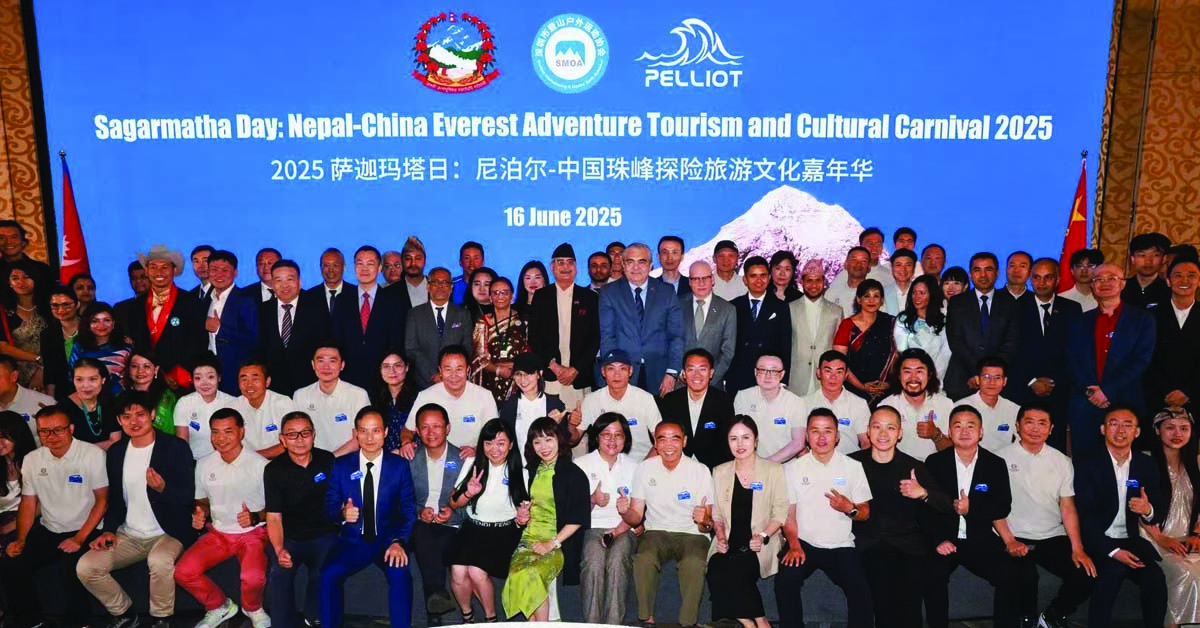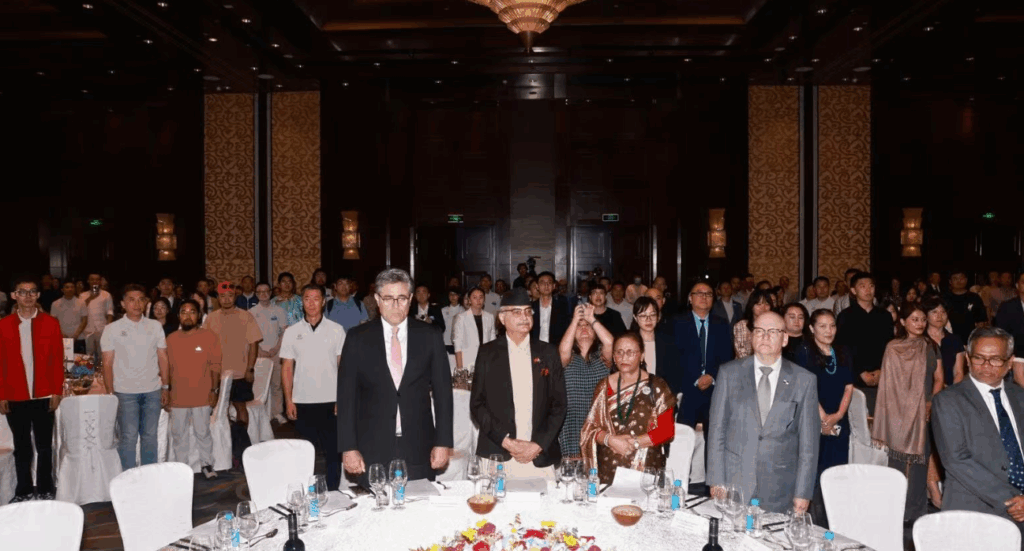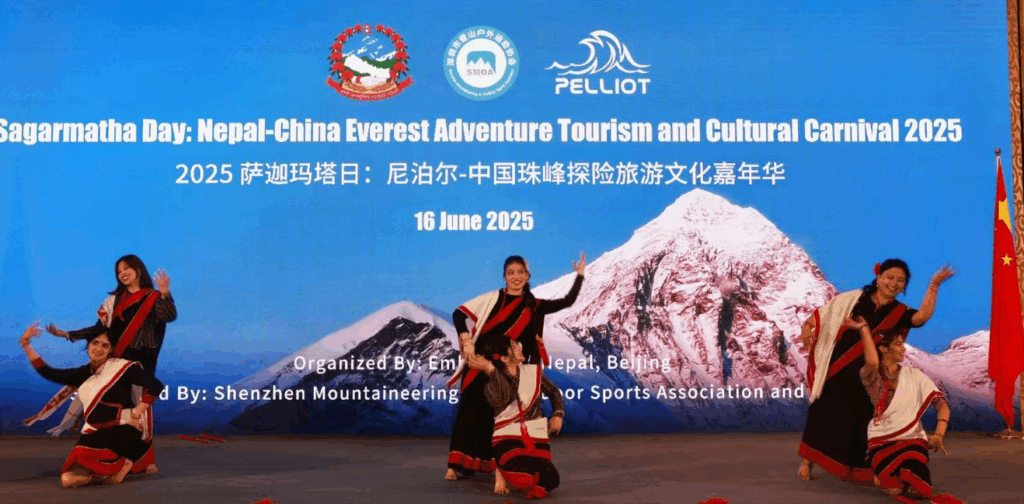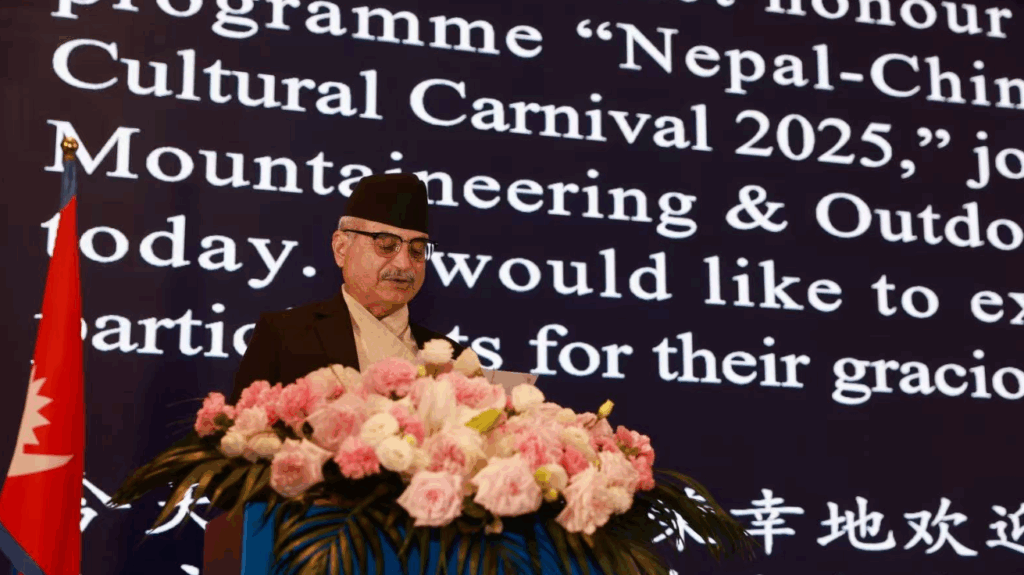

 21.21°C काठमाडौं
21.21°C काठमाडौं

KATHMANDU: In a celebration of the 72nd Sagarmatha Day and the 70th anniversary of diplomatic relations between Nepal and China, the Embassy of Nepal in Beijing organized a grand programme titled “Sagarmatha Day: Nepal-China Everest Adventure Tourism and Cultural Carnival, 2025,” in collaboration with the Shenzhen Mountaineering and Outdoor Sports Association and PELLIOT.
Held at the Four Seasons Hotel in Beijing on June 16, the event honored the successful ascent of Mt. Sagarmatha by 70 Chinese and 3 Nepali mountaineers with Certificates of Appreciation. The programme was attended by over 270 guests, including government officials, diplomats, entrepreneurs, mountaineers, and media representatives from both countries.

The event emphasized tourism promotion and environmental collaboration. A joint China-Nepal Environment Statement was issued by eight non-governmental and private sector organizations from both nations, pledging cooperation on conserving the Himalayas, promoting eco-friendly climbing, and exchanging knowledge and technology.
Highlighting the event, cultural performances and exhibitions showcased Nepal’s rich traditions. Nepali students studying in China performed traditional dances, and Nepali cultural products were exhibited by Beijing-based Nepali entrepreneurs. A song titled “Himalaya” composed by Dr. Krishna Prasad Oli, Ambassador of Nepal to China, was also presented.

In video messages, Nepal’s Minister of Culture, Tourism and Civil Aviation, Badri Prasad Pandey, and Chinese Ambassador to Nepal Chen Song, underscored Mt. Sagarmatha’s role as a symbol of bilateral friendship and called for greater collaboration in tourism and climate action.
Ambassador Oli called Mt. Sagarmatha is a “natural laboratory” for studying human physiology and environmental extremes, stressing its global significance. He and other speakers, including Vanke Foundation’s Wang Shi and ICIMOD Director-General Pema Gyamtsho, emphasized the urgent need to protect the Himalayas from the impacts of climate change and pollution.

Six renowned mountaineers from Nepal and China also shared their personal experiences of climbing the world’s highest peak, making the event a powerful tribute to human endurance, cultural diplomacy, and shared environmental responsibility.